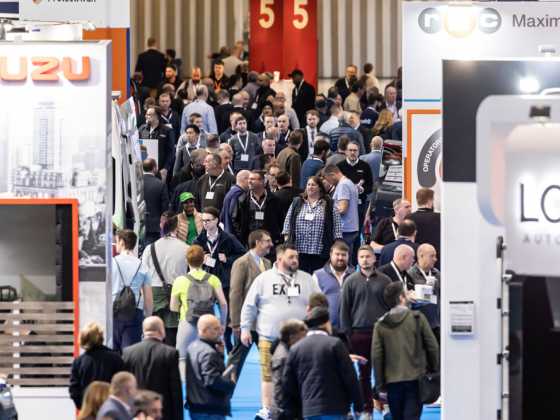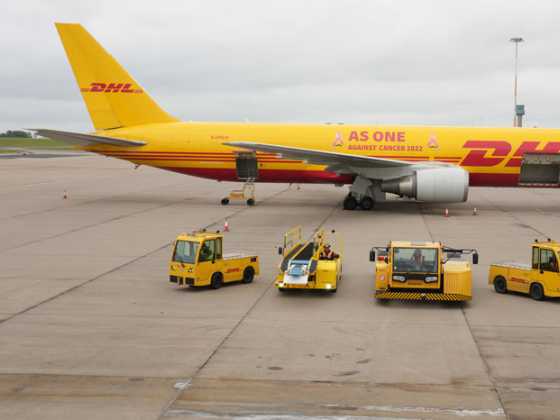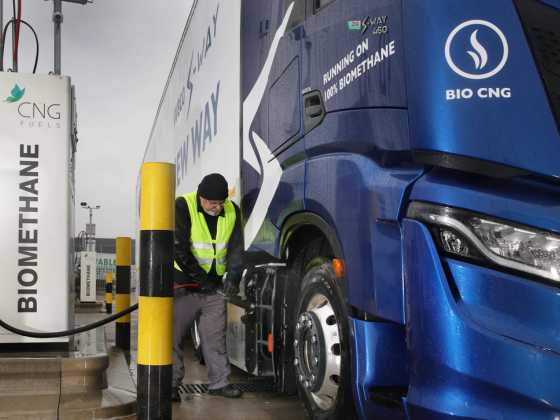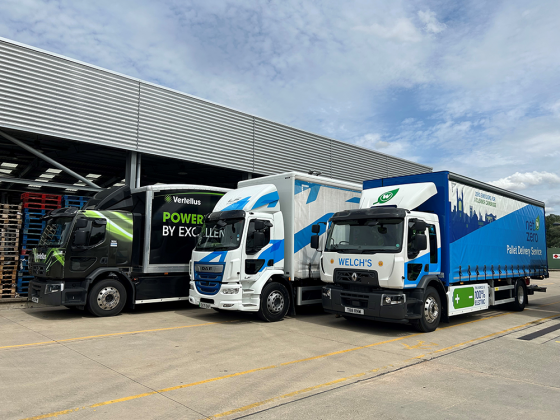Green to the core
London’s Islington Council has launched a fleet of business-waste recycling trucks, fuelled by discarded cooking oil from the very restaurants they serve
 The London borough of Islington and contractors Enterprise have recently procured four new 26 tonne recycling and refuse vehicles. These are one pass, three compartment vehicles to collect waste and recyclables all in one trip rather than dedicated vehicles doing numerous trips to the same address. The vehicles have the capacity to collect refuse, commingled recycling and either food waste or glass in a dedicated front pod.
The London borough of Islington and contractors Enterprise have recently procured four new 26 tonne recycling and refuse vehicles. These are one pass, three compartment vehicles to collect waste and recyclables all in one trip rather than dedicated vehicles doing numerous trips to the same address. The vehicles have the capacity to collect refuse, commingled recycling and either food waste or glass in a dedicated front pod.
Islington have been at the forefront of sustainable transport utilising bio-fuels, electrification, alternative fuels and other technology to reduce the fuel we use and also the emissions that are produced by the fleet. The four new vehicles have the latest engine management system that uses selective catalytic reduction (SCR) to reduce emissions to a minimum when running on standard diesel. Islington however has taken a significant step forward and will be running these vehicles on used vegetable oil (UVO). The oil is a waste product that is collected from Islington and the London area, converted into fuel in the borough through a transesterfication process and will be used in the borough achieving up to 91 per cent CO2 savings.
Cllr Greg Foxsmith, Islington Council’s executive member for environment, said: “This is a great example of ‘what goes around comes around’ and shows how everything that’s thrown out can be a valuable resource.”
“Islington, including our trendy Upper Street, is famous for its fabulous restaurants so it’s great people can know they’re doing what’s best for the environment when they dine in our borough.”
Keeping it local
Due to the very localised operation, there is very little carbon overhead, especially because GreenerDiesel, the company that converts the used cooking oil into diesel, runs their own vehicles on their product. Islington used to run some of its bus fleet on pure, virgin oils as these reduced carbon emissions by up to 70 per cent but using waste oils reduces the carbon footprint significantly and diverts a waste product, a perfect scenario for running recycling vehicles.
Islington is planning on rolling out this fuel to many other vehicles in its fleet when manufacturers change their warranty conditions.
The fuel delivers significant carbon savings and based on just these four vehicles using 100 litres of UVO per day and running five days a week use 2,000 litres a week. At the Defra conversion figure of 2.63kg/litre, the emissions would be 5.26 tonnes of CO2 a week on standard diesel. With a 91 per cent carbon reduction, that figure is slashed to 473kg/week effectively taking 4,787kg out of the atmosphere each and every week. Putting this in perspective, that is equivalent to taking 80 cars off the road. [If an average diesel car gets 45mpg, and does 12,000 miles a year, it uses 267 gallons, or 1,213 litres a year, or 23 litres a week = 60kg of CO2 a week. Taking 4,787kg out per week is equivalent to taking 80 cars off the road. (4,787/60 = 79.78)]
How it works
Biodiesel, made from either used or virgin oils is made by a process called transesterfication. Methanol, potassium methylate and the input oil are mixed in the transesterfication reactor. This separates the oil into two components, methyl esters (the chemical name for biodiesel) and glycerine (a by-product with value for use in soaps and other products).The biodiesel is then further enhanced with anti-oxidants (to prevent the biodiesel going off), octane enhancer (to improve mpg and cold starting) and cold flow enhancer (to prevent gelling at cold temperatures).The chemical inputs into the biodiesel production process do carry a carbon overhead. When accounted for, however, the overall carbon intensity profile is preferable to virgin biofuels, such as Pure Plant Oil.
GreenerDiesel operates a distribution and collection round to restaurants and takeaways. This maintains the type and quality of the UCO being collected. This, combined with GreenerDiesels investment in state of the art technology, makes high quality biodiesel ensuring reliable vehicle operation.
The right priorities
Islington shifted its fleet priorities in the last few years to one where sustainability and reducing emissions have the highest priority. We have a policy document outlining how fleet vehicle operators and members of staff can reduce their environmental burden both during and outside of working hours.
We recommend the use of public transport, walking and cycling, car sharing and car clubs in the first instance. If none of these forms of transport are suitable then we will analyse the ‘right vehicle’ for the ‘right application’ to ensure that we will not be overloading our vehicles or running with too much spare capacity. We will then find the lowest emission vehicle that would be suitable for the application whilst ensuring it fits into our air quality plan and that the workshop understands the technology and its maintenance regime. The final step would be rigorous training of the driver to ensure that they get the very best from the vehicle and really utilise the technology that is now available.
The highest polluting vehicles in the fleet are our refuse vehicles and we have made a massive effort to run only Euro IV, V and VI vehicles. Our latest four from Mercedes are running on 100 per cent used vegetable oil (UVO) which is collected from Islington and the London area, processed in the borough and used there. This reduces our carbon emissions by up to 91 per cent as it uses a waste product and is done on such a localised scale. We are also looking into hybrid drive and electric compaction/bin lifts to further reduce the impact of these vehicles. The waste transfer vehicles run on a combination of CNG and bio-diesel but if UVO trails prove successful, we will expand its use to these.
Our bus fleet has two of the first stop/start buses in London reducing emissions by up to nine per cent and have been running on pure plant oil (PPO) for over a year further reducing emissions by up to 70 per cent, this will be superseded by UVO if successful on the refuse vehicles.
Educating drivers
A dedicated driver-training vehicle incorporating an Eco log clearly demonstrates emission levels in real time driving conditions so we can educate drivers how to drive more environmentally. Eco logs have been installed on six more identical buses so that a league table can be drawn up to compare fuel consumption and run some informal competitions to improve fuel consumption. Eco logs are also installed on our stop start buses to monitor how effective the system is compared with the standard model.
We are currently logging data on two retrofit hybrid-drive systems installed on six vehicles with the intention of a large-scale conversion of our van fleet on completion of the evaluation. These should see a reduction in CO2 and the equivalent fuel of up to 26 per cent. We use LPG and bio-diesel on some vehicles and are constantly investigating ways to reduce their carbon and other emissions.
Going electric
Our electric and hybrid fleet continues to grow with another two Modecs on order, another Smart ED coming and more Toyota Prius cars. A number of electric cars and scooters make up the remainder of this fleet and are all powered by renewable energy saving up to 14,760Kg CO2 per annum.
We are taking part in the government low carbon van programme and taking on 15 all electric (Modec, Smiths) and five hybrid vans. We also have funding for EV charging expansion through the DfT and a hydrogen project through work with Transport for London later.
We continue to use our GPS system with over 90 units installed and rigorous driver training to further reduce emissions and fuel through management systems.
We have used a five per cent blend of bio-diesel for two years. This in itself does not reduce emissions significantly but over 20,000 litres of diesel per week, has made a significant impact. The issue of warranties prevented us from going further and moving to higher blends. One technology that overcame this was pure plant oil (PPO). This required an engine modification but used PPO from the national farmers union on set-aside land from the UK. This was estimated at reducing CO2 by up to 70 per cent on a well to wheel basis. The current plan is to shift all DERV’s to a bio-diesel derived from used vegetable oil (UVO). This is very current and trials will begin shortly but if successful we could see up to 91 per cent CO2 savings as well as other measured emittants. The oil would be collected from the borough, processed in the borough and delivered less than a mile to our depot allowing for an almost utopian emissions cycle and use of a waste product.
Recycling on the go
Over 9,000 people walk along Upper Street every hour, and they’ll now be able to recycle their papers, magazines, drink cans and other items that sometimes end up in the rubbish bin. This is all thanks to the 30 new recycling bins that have been placed the length of the road from Highbury Corner to Angel tube station.
The recycling bins are easy to spot and take the full range of recyclable materials, so shoppers can put all their glass bottles and jars, paper and card, food tins and drinks cans, and plastic packaging and cartons into the bins. This is all part of Islington’s commitment to making recycling as easy as possible and reaching our recycling target of 35 per cent. Why not join the debate and ask any questions at our Facebook group, ‘Recycling Islington’?
How biodiesel is made
Biodiesel, made from either used or virgin oils is made by a process called transesterfication. Methanol, potassium methylate and the input oil are mixed in the transesterfication reactor. This separates the oil into two components, methyl esters (the chemical name for biodiesel) and glycerine (a by-product with value for use in soaps and other products). The biodiesel is then further enhanced with anti-oxidants (to prevent the biodiesel going off), octane enhancer (to improve mpg and cold starting) and cold flow enhancer (to prevent gelling at cold temperatures). The chemical inputs into the biodiesel production process do carry a carbon overhead. When accounted for, however, the overall carbon intensity profile is preferable to virgin biofuels, such as Pure Plant Oil.
About GreenerDiesel.com (UK) Ltd
GreenerDiesel.com (UK) Ltd produces biodiesel from used cooking oil. It processes cooking oil using proven rendering techniques. This oil can then be sold to users of diesel engines either commercial or domestic.
The company’s clients are predominantly public sector service clients, fleet operators and other similar enterprises. GreenerDiesel.com (UK) Ltd has formed and is continuing to establish relationships with private car owners, taxi firms and commercial enterprises to supply diesel to them.
GreenerDiesel.com (UK) Ltd collects (in cooperation with local taxi companies, whose vehicles run on GreenerDiesel) used cooking oil from local businesses. It has contractual relationships with a wide range of suppliers predominantly in the catering industry.
While there are a number of producers of biofuel in London and the surrounding area GreenerDiesel.com (UK) Ltd differentiates itself by its strict UVO policy and its local approach. The feedstock (used vegetable oil) used in the process is sourced from local companies and local authority enterprises. It is sold back as usable GreenerDiesel at lower prices than conventional diesel, generating a low cost fuel alternative for the local economy. The company’s low carbon footprint is a result of its local approach.
About Enterprise
Enterprise is a support services company that provides infrastructure maintenance services for the public sector, the utilities industry and other large organisations.
The company uses bespoke IT systems and unique scheduling software to manage many tasks such as the collection of refuse, the maintenance of streets and highways, the maintenance and repair of gas and water pipes, the replacement of telecoms and power cables, the repair of social houses and much more.
The company’s experience and knowledge of recycling and sustainability means they work with their customers to advise on legislative regulations, suggest innovative approaches to meet recycling targets and help to drive down costs by reducing the amount of refuse sent to landfill.
Enterprise is sponsoring the LGC and MRW Recycling Campaign to improve the quality of the materials sent for recycling.
For more information
www.islington.gov.uk
www.enterprise.plc.uk
www.greenerdiesel.org.uk






